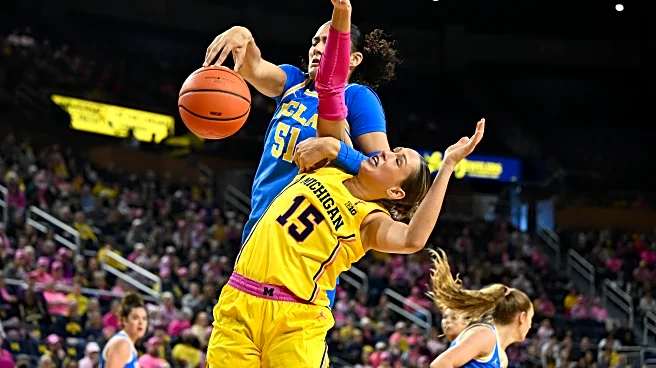What is the story about?
What's Happening?
CatalYm has announced the dosing of the first patient in its Phase 2b GDFATHER-NSCLC-01 trial, which evaluates the efficacy and safety of visugromab, an anti-GDF-15 antibody, in combination with standard chemoimmunotherapy for newly diagnosed metastatic non-squamous non-small cell lung cancer (NSQ mNSCLC). The trial aims to compare this combination against a placebo plus chemoimmunotherapy. Visugromab is designed to neutralize Growth Differentiation Factor-15 (GDF-15), a cytokine that contributes to immune suppression and resistance to PD-(L)-1 therapies. The trial will enroll approximately 107 patients across the US, EU, and Switzerland, with primary endpoints focusing on objective response rate and secondary endpoints including progression-free survival and overall survival.
Why It's Important?
This trial is significant as it addresses the high resistance rates to current immunotherapies in NSCLC, a leading cause of cancer-related deaths. With 70-85% of NSCLC patients showing resistance to PD-1 blockade, visugromab's potential to overcome this resistance could improve treatment outcomes. The trial's success could lead to a new first-line treatment option, potentially enhancing survival rates and quality of life for patients with limited options. The development of visugromab also highlights the ongoing innovation in cancer treatment, focusing on overcoming resistance mechanisms and improving therapeutic efficacy.
What's Next?
The trial will proceed with an initial non-randomized safety run-in, followed by a randomized phase. Results from this trial could influence future treatment protocols for NSCLC, especially if visugromab demonstrates significant efficacy and safety. The outcomes may also impact regulatory decisions and pave the way for further studies in other cancer types. Stakeholders, including healthcare providers and patients, will be closely monitoring the trial's progress and results, which could lead to broader adoption of visugromab in clinical practice.
Beyond the Headlines
The trial's focus on GDF-15 neutralization could have broader implications for cancer treatment, potentially leading to new strategies for managing cancer cachexia, a severe condition affecting many cancer patients. By improving patients' quality of life and treatment tolerability, visugromab could extend therapy duration and enhance overall treatment success. This approach may also inspire further research into targeting similar pathways in other cancers, contributing to a more comprehensive understanding of cancer biology and treatment resistance.
















